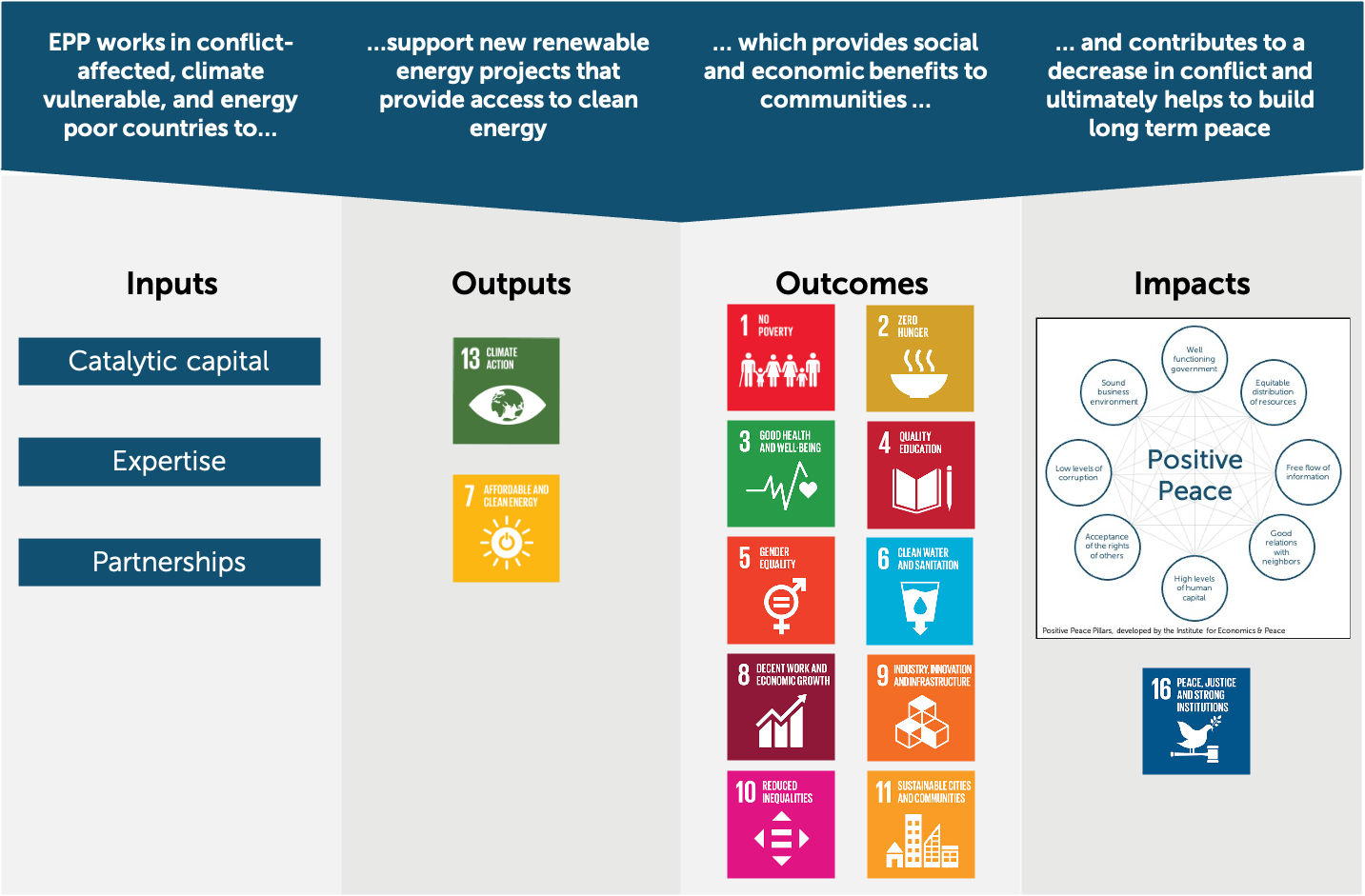Overview
The renewable energy revolution has swept across much of the world over the last decade, attracting hundreds of billion dollars of new investment per year, dominating global climate finance and changing energy systems. Yet roughly 800 million people in the world are still without access to electricity, 90% of whom live in fragile states. Only a tiny fraction of renewable energy investment is directed to these countries. There are many factors that explain this mismatch, most of which tie back to a related problem – renewable energy decision making frameworks currently focus on the environmental/carbon impacts, energy generation, and economic analysis; there is no commonly agreed framework for understanding and measuring the social impacts of renewable energy. As a result, investment flows to stable countries with conducive regulatory environments, seeking the projects with the highest economic returns and greatest environmental impacts. We require a new toolkit to measure the other social impacts of renewable energy if we are to combat energy poverty, and harness the potential of renewable energy as a tool for building resilience peace and stability.
EPP’s Theory of Change
TO ADD - Text to describe TOC
EPP’s Impact work
Project level impact tracking
EPP believes that the peace benefits of its P-REC funded projects can and should be tracked and measured. We are currently building out our impact management system: based on our Theory of Change and utilizing standardized indicators from the relevant SDGs, EPP will be able to track and measure the outputs, outcomes and peace impacts attributable to each P-REC funded project where data collection can take place.
Using a suite of data collection tools including project partner load and connection data, household surveys, key informant interviews and focus group discussions, EPP will not only measure quantitative changes in a range of environmental, social and economic variables, but better understand, through story-telling narratives the mechanisms behind these changes.
We look forward to sharing more with you soon!
Impact stories
Research
EPP is committed to continuously learning and understanding what and how renewable energy and energy projects can serve as a tool in the peace-building toolkit and what the implications of a renewable energy transition may be for fragile and climate-vulnerable states, both positive and negative. As part of our impact work, we are undertaking in-house research into various areas at the nexus of the peace-building/renewable energy spaces:
Literature review - [either pdf dated; or view only google doc]
This literature review, a living document which is intended to be updated continuously as we learn more, speak with more experts and collect more data, is our first cut at trying to map the state of impact work in the renewable energy space.
White paper: macro-level links between renewable energy and peacefulness [[Hyperlink:]
This white paper presents the findings of our analysis looking at country-level data from around the world on the links between renewable energy consumption and generation, and peacefulness. You can find the data we used in our analysis here [hyperlink to excel file]











